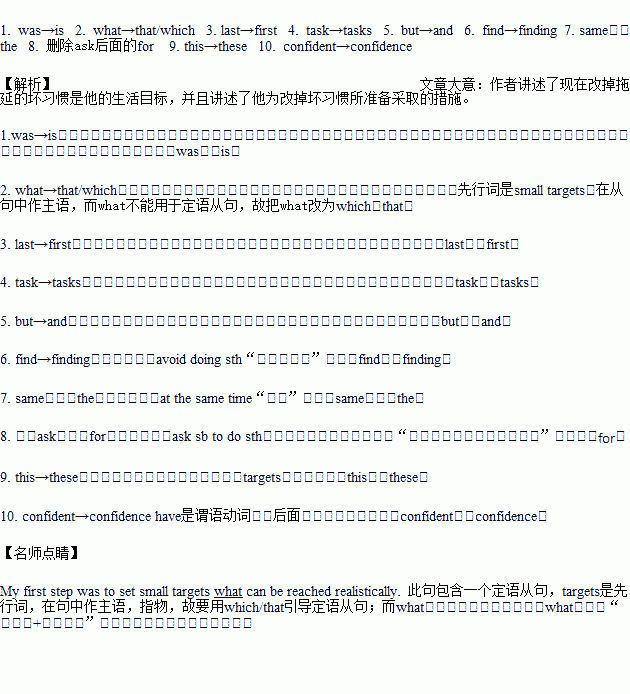��Ŀ����
�ٶ�Ӣ�������ʦҪ��ͬ��֮�佻�������ģ���������ͬ��д���������ġ����й���10�����Դ���ÿ���������������ÿ��������漰һ�����ʵ����ӡ�ɾ�����ġ�
���ӣ���ȱ�ʴ���һ��©�ַ���(��)������������д���üӵĴʡ�
ɾ�����Ѷ���Ĵ���б��( \ )������
�ģ��ڴ����»�һ���ߣ����ڸô�����д���ĺ�Ĵʡ�
ע�⣺1. ÿ���������ľ�����һ�ʣ�
2. ֻ������10��������(�ӵ�11����)���Ʒ֡�
Getting rid of the bad habit of procrastination (����֢) is now my goal in life. My first step was to set small targets what can be reached realistically. For example, I plan to set a timetable for my study. So after school, I will put finishing homework in the last place. Additionally, I will make a list of my important task including their due dates but follow my schedule strictly. I will avoid find excuses for putting them off. At same time, I will ask for my friends and parents to help me. By achieving this small targets, I have confident that I will overcome procrastination.
 ֱͨ������У�ܲ��¿�ֱͨ��Уϵ�д�
ֱͨ������У�ܲ��¿�ֱͨ��Уϵ�д�
